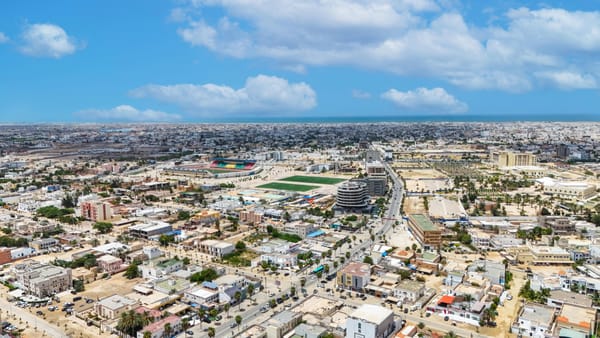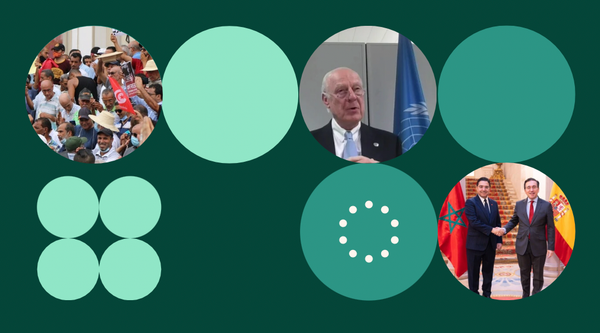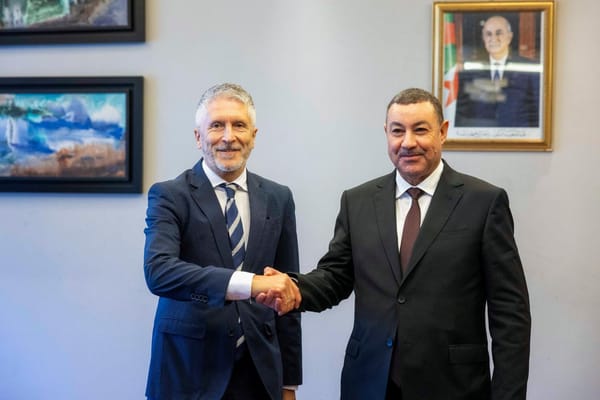The End of 'Algex': Towards a New Model of Foreign Trade in Algeria?
BRIEF. The intention behind replacing the Foreign Trade Promotion Agency (Algex) is to address criticism of its corruption and excessive bureaucracy. However, the move also aims to modernise the trade, protect domestic production and foster closer ties with the business community.

- The National Agency for the Promotion of Foreign Trade (Algex) has just been abolished due to its serious inefficiencies and slow operation. Since 2004, Algex has been responsible for promoting exports and, more recently, controlling imports.
- Two different bodies have now been created to handle imports and exports respectively. Both will promote the digitisation of all processes and their interconnection with other systems, thereby facilitating the work of operators and enhancing efficiency and transparency. They will also promote purchasing and sales centres to strengthen the bargaining power of Algerian entrepreneurs.
- This change is part of President Tebboune's firm commitment to modernising the economy, but it is also a response to the need to protect domestic production and gain the support of the business community, which had criticised the system's inefficiency. Furthermore, the new bodies seek to establish Algeria as a reliable partner abroad and to market its products internationally in an effort to diversify away from hydrocarbons.
On 7 September, three decrees were published in the Algerian Official Gazette, bringing an end to the National Agency for the Promotion of Foreign Trade (Algex) and creating two new entities to replace it: the Algerian Import Agency and the Algerian Export Agency. Both entities have their own legal personality and are supervised by the Minister of Foreign Trade and Export Promotion, Kamel Rezig.
Algex
Algex was created in 2004 to promote exports (excluding hydrocarbons) and support exporters through the Special Export Promotion Fund. However, its mission was later amended to include the regulation of imports. This required Algex to verify the absence of local products prior to each import and issue importers with certificates to finalise their transactions. This considerably slowed down the entire process. For this reason, President Tebboune himself criticised it earlier this year for its inefficiency in front of economic operators, even describing it as a 'Jurassic institution'.
Business leaders had long been denouncing its lack of efficiency, opacity, mismanagement, delays, excessive bureaucracy and corruption in the granting of import licences. To the business community, Algex was a 'real brake on industry' due to its 'lack of market knowledge' and its 'confusion between imports intended for resale and those necessary for the proper functioning of the productive apparatus', leading to 'cost overruns and a decline in productivity'.
Algerian Import Agency
Executive Decree 25-233 establishes the entity responsible for 'monitoring and supervising imports'. This entity will be headed by a director general and administered by a Guidance Council comprising representatives from eleven ministries, other agencies, public departments and the banking association. The Agency's responsibilities include defining import requirements, collaborating with relevant sectors to ensure the traceability of imported goods, establishing a national register of importers, monitoring prices in international markets, producing analytical studies and statistics, preparing proposals for other bodies, and implementing recommendations within its remit.
To support importers, the agency will operate a digital platform to facilitate the granting of visas and authorisations by the relevant sectors. This platform will be interconnected with the systems of other agencies involved in imports, such as the Bank of Algeria, authorised private banks, and the Directorate General of Customs.
Finally, the agency will promote the establishment of purchasing centres, which will be brought together on the platform, to strengthen bargaining power with international suppliers, improve delivery times and ensure a regular supply to the market.
Algerian Export Agency
Executive Decree 25-234 provides for the establishment of an export-related entity with a similar governance structure. This body will succeed Algex formally and must take over all its assets, personnel and resources within six months.
Its primary task will be to promote Algerian exports and products abroad by creating ‘Houses of Algeria’, introducing the ‘Made in Algeria’ label, and standardising products intended for export. As with its sister body, it will carry out analytical tasks on international markets and prospective studies, disseminating the results in reports. It will also perform other tasks related to Algeria's participation in international fairs and coordination with chambers of commerce. The entity will also establish a national register of exporters and encourage collective export initiatives to strengthen negotiating power with international buyers.
To facilitate export activity, the entity will set up a one-stop shop where exporters can complete all the necessary procedures in one place and within the shortest possible timeframes. This includes obtaining authorisations and other documents related to the export operation. To this end, the agency will also have a digital platform interconnected with other systems which will be made available to exporters for tracking their files and consulting any related documentation.

Conclusions
From an economic perspective, the elimination of Algex appears to be a step forward in modernising Algeria's foreign trade. In recent years, the entity had become a real drag on the development of the domestic industry, which accounted for only 3% of the Algerian economy in 2019. The regime wants to increase this figure to 12% (currently, it accounts for 7%). The digitisation, increased transparency, rationalisation and acceleration of processes are intended to stimulate domestic production and ensure that products and services traded abroad effectively meet the needs of the Algerian economy. For these reasons, the change has been very well received by the business community and members of the National People's Assembly.
However, despite efforts to streamline the process, some tasks will still be based on import forecasts (Programme Prévisionnel d'Importation, or PPI), which importers of certain goods and services must submit every six months. This obligation came into force retroactively on 1 July this year and must be complied with in order to set up direct debits, which is likely to increase bureaucracy and cause delays in operations.
On the other hand, this change can also be interpreted politically. The repeal of this institution, which dates back to 2004, is part of the Tebboune regime's efforts to modernise the economy and combat corruption, in order to align business leaders with the regime's vision for the country. This follows the government's crackdown on money laundering and fraud during its first term, which led to the prosecution of several businesspeople and caused the General Confederation of Enterprises to show its discomfort. The regime also seeks to project an image of modernity and transparency abroad, promoting greater regional integration and the country's gradual incorporation into global economic flows. In this regard, while the EU is seeking a new type of relationship with its southern neighbours through the new Mediterranean Pact, Algeria aims to demonstrate that it can offer an attractive trading system. It wants to present itself as a reliable, modern partner that is not only a market for European products, but also a supplier of its own goods, not just hydrocarbons. This should reassure the EU, which on July launched arbitration proceedings against Algeria's trade and investment restrictions, including import licences, PPIs, and a total ban on imports of marble and ceramic products. Therefore, it remains to be seen whether the abolition of Algex and the restoration of political and economic relations with Spain, with which a 'reinforced economic partnership' has been announced, will truly elevate Algeria to the coveted status of 'emerging country', or if the change is merely cosmetic and the new bodies will 'inherit' the inefficiencies of the previous institutional framework.




